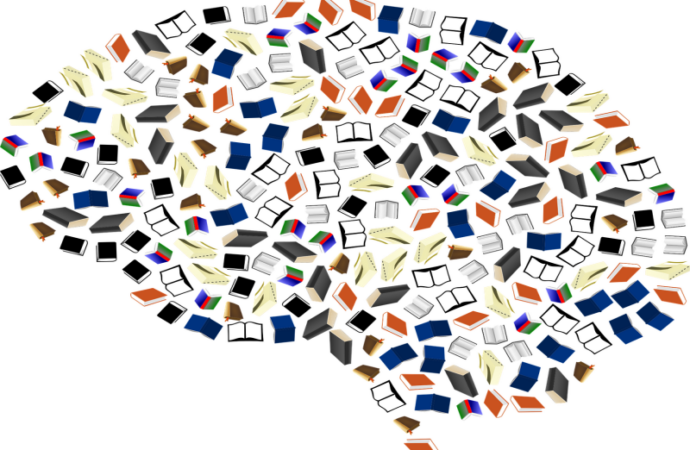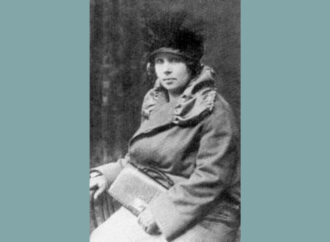Books have, without a doubt, done great things for humanity. In them, we have recorded some of the weightiest thoughts ever to enter the human mind. By them, we have sustained deep and substantive theological, philosophical, and moral discussions. And with them, we have influenced minds, arguments, and even culture itself.
These are all good things—they have enriched our understanding of ourselves, God, and the world—yet still I wonder: What if one benefit of books—fiction in particular—has been left largely unsung? Like much well-constructed art, fiction allows us to enter another being’s consciousness. But before we consider why this is important, we have to examine why fiction often occupies this unique role.
Conscious Thoughts and Consciousness
Several months ago, I tried to distinguish two things: conscious thoughts and consciousness. Conscious thoughts, I decided, are often easily articulated. They are particular statements or ideas. “Truth is more than propositional” exists as a conscious thought in my mind: It deals with an explicit claim about the world.
Consciousness, on the other hand, is vaguer: It deals with the human experience, and it can’t often be packaged neatly into words. It encompasses the sensations of emotions, and it describes our unique, holistic experience of the world. My consciousness, for example, exists as an aggregate of the thoughts I think, the feelings I feel, and the events that happen to me. It arises from my unique life experience, and it can’t perfectly be transferred to another person, unlike a thought or idea that can be shared with others.
Conscious thoughts, then, can usually be easily brought down into the realm of strictly ordered truth; consciousness is often hazy, requiring more than propositional statements to express. And while conscious thoughts can be easily learned (we all know that 2 plus 2 equals 4), understanding another’s consciousness may elude us.
Understanding Consciousness
The question comes, then: How do we begin to understand the holistic viewpoints of others—their consciousness?
One way—the way most of us use—is to interact deeply and consistently with the people around us. We all, by necessity, live in different consciousnesses, and interacting with the views and experiences of each other will teach us more about the world.
Another, yet often forgotten, way is to experience good art. Art guides us into experiencing the world through another person’s eyes—into understanding more than the disparate, conscious thoughts of human experience. Art inserts us into a reality sometimes altogether different than our own.
Consciousness and Books
A few months ago, a friend of mine asked what I was learning from Shūsaku Endō’s Silence, a book on a Catholic priest traveling to 17th-century Japan. My friend’s question was a tricky one to answer: While I had learned substantive things from the book, they didn’t quite fit into words. How could I express my newfound empathy for spiritual leaders overrun with discouragement, confusion, and the presence of seemingly senseless pain? How could I articulate the experience of grief wrought by the steady withdrawal of God? My reading had taught me, yes, but those teachings were near impossible to fit into staid little words.
Granted, I don’t get such teaching from every book I read. Sometimes I finish a book with little more than the amusement of reading. Other times, I understand the main tenets of a book’s argument but feel unable to—at the time—enter the characters’ world.
Usually, though, that isn’t the case. There is rarely a book I read that does not teach me something about the human experience. And even when I can’t articulate my learning in a set of conscious thoughts, I’ve gained experience by living life, at least temporarily, through another person’s eyes.
In the past few weeks alone, I’ve explored the feeling of wartime tragedy in All Quiet on the Western Front, grappled with questions of loyalty in Peace Like a River, and entered the eyes of blind Marie in All the Light We Cannot See. With each book, I’ve expanded my conceptual and experiential bounds, better appreciating the mindsets of others and learning to marvel at the complexity of the varied human experience.
—
Image credit: Pixabay-GDJ

















1 Comment
Oscar Tempora
May 8, 2023, 11:21 pmMs. Hitz:
You went somewhere I wasn't expecting, more into sharing ideas than… something else, I'm not sure.
But given that, I would suggest two authors : Julian Jaynes, "The Origin of Consciousness", and pretty much anything (touching on the mind) by Oliver Sacks.
As for "truth", I think B. Russell spent quite some time "proving" that 1 + 1 = 2. I don't know if he ever got to 2 + 2.
I enjoy reading what you have to say. That is true.
REPLY